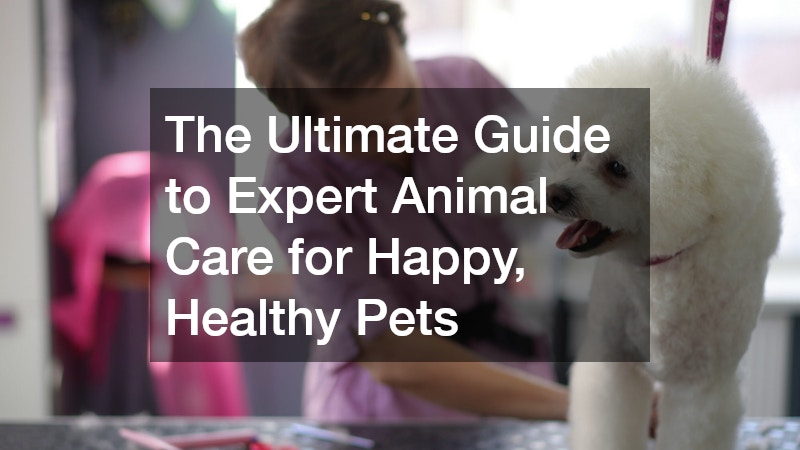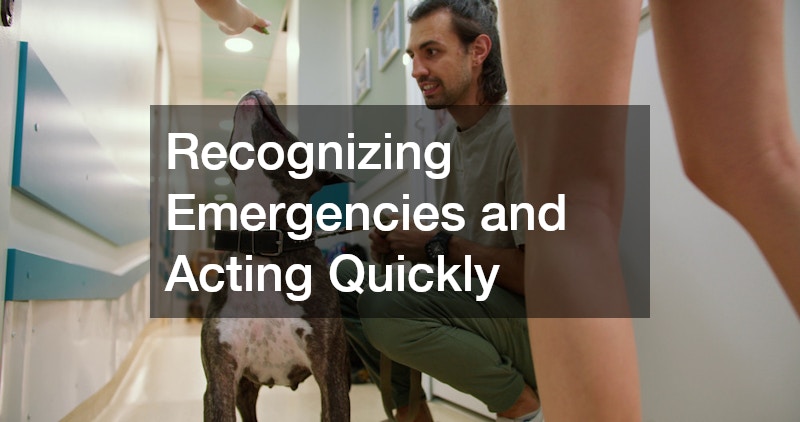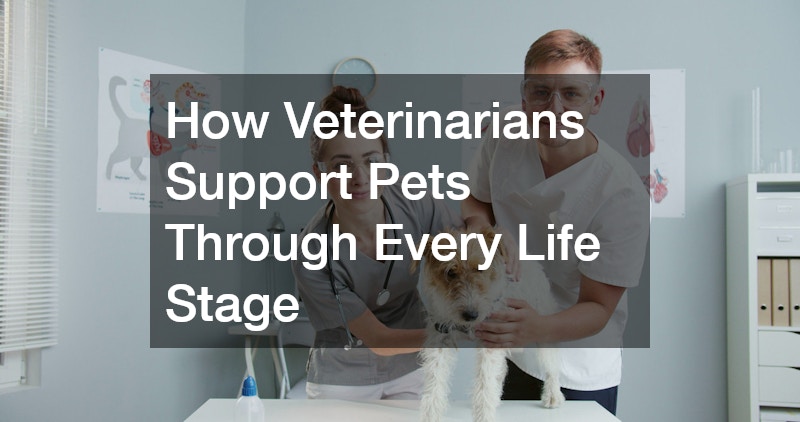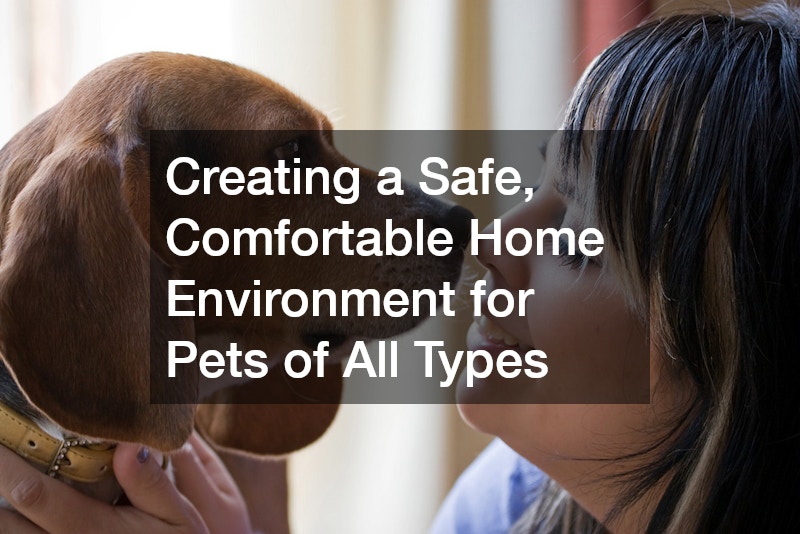Caring for a pet is one of life’s greatest joys—and responsibilities. Our pets depend on us for everything: food, shelter, love, exercise, and medical attention. In return, they offer loyalty, comfort, and emotional connection that enriches our lives immeasurably. But to ensure they live long, happy, and healthy lives, we must go beyond affection and embrace a higher standard of responsibility known as expert animal care.
Expert animal care means understanding the science, psychology, and daily habits that keep pets thriving. It’s not simply feeding them or taking them for walks—it’s about anticipating their needs, detecting changes early, and providing physical and emotional enrichment tailored to their species and temperament.
This guide brings together professional-level insight into every aspect of pet wellbeing—nutrition, grooming, socialization, medical care, and emergency preparedness—so you can confidently provide the same standard of care that veterinarians, trainers, and behaviorists deliver every day. By the end, you’ll have a clear roadmap to raising healthy, joyful pets and building a lifelong bond grounded in trust, respect, and genuine understanding.
Understanding the Foundations of Expert Animal Care
To master expert animal care, you first need to understand the foundation: consistency, observation, and empathy. Pets thrive on structure. When they know what to expect each day—when meals happen, when walks occur, when it’s time to rest—they feel secure and content. A calm environment with predictable routines lowers stress hormones, supports healthy digestion, and even improves behavior.
Structure doesn’t end at home, though. Whenever you’re away, continuity of care is crucial. A trusted dog boarding facility that prioritizes safety, enrichment, and personalized attention helps maintain your pet’s sense of stability. The best facilities mimic the home routine—consistent feeding times, familiar bedding, supervised play, and staff who genuinely love animals. When you visit one, look for clean enclosures, transparent communication, and trained caretakers who understand canine body language.
Incorporating these habits into your pet’s routine builds trust and prevents separation anxiety. Expert animal caretakers know that pets don’t just need shelter—they need a rhythm, gentle leadership, and reliable comfort. If you can maintain those three elements, your pet’s overall well-being will flourish.
Nutrition and Daily Care Routines
Nutrition is the cornerstone of good health. Every pet’s diet should be carefully tailored to its species, breed, age, and activity level. Feeding high-quality food means prioritizing balanced ingredients—real protein sources, healthy fats, and essential vitamins—over fillers or artificial additives.
When reading pet food labels, look for specific protein sources (“chicken,” “salmon,” “beef”) listed first. Avoid vague terms like “meat meal” or “animal byproducts.” Portion control also matters—obesity is one of the most common health problems in pets today. Use a kitchen scale or measuring cup to ensure consistent portions, and never rely solely on the feeding guidelines printed on the bag, which often overestimate serving size.
Integrating feeding into a structured dog training program can help build discipline. For instance, have your dog “sit” or “stay” before eating. This simple habit strengthens obedience while reinforcing calm behavior around food. It’s a technique many expert trainers recommend because it turns an everyday activity into a learning opportunity.
Hydration is equally critical—fresh water should always be available, especially in warm weather or after exercise. Expert animal caretakers monitor appetite and hydration daily; sudden changes can signal underlying health issues. The rule is simple: a steady diet and predictable feeding routine are as important to emotional balance as they are to physical health.
The Role of Exercise, Enrichment, and Behavior Management
Exercise keeps the body strong and the mind engaged. For most pets—especially dogs—daily physical activity isn’t optional; it’s essential. Without it, energy builds up, leading to frustration, anxiety, or destructive behavior. Expert animal care involves balancing both physical and mental stimulation to match each pet’s natural instincts.
Start by researching your breed’s energy level and history. Working dogs like border collies and huskies need vigorous activity—runs, fetch, or agility training—while companion breeds may prefer shorter, frequent walks or indoor games. Mental enrichment can include scent-tracking activities, puzzle feeders, or teaching new tricks.
When behavior issues arise, professional dog training services can help. Qualified trainers assess behavior patterns and create personalized plans using positive reinforcement, which builds confidence rather than fear. Avoid outdated punishment-based methods; they often make anxiety and aggression worse.
Even outside of training sessions, owners should reward calm, desired behavior consistently. Daily playtime also strengthens the bond between pet and owner, reducing stress for both. True expert animal caretakers know that mental fatigue is just as beneficial as physical exercise—it leads to calmer, happier companions who feel seen, understood, and fulfilled.
Preventive Health and Regular Screenings
Just as humans schedule regular checkups, pets need proactive medical care to catch potential problems early. Preventive medicine saves money, minimizes suffering, and dramatically increases lifespan. Core vaccinations, parasite prevention, dental cleanings, and wellness exams all form the basis of preventive health.
Schedule dog health screenings annually—these include blood panels, fecal tests, and heartworm checks. Early detection can reveal organ dysfunction, infections, or nutritional deficiencies long before symptoms appear. Senior pets may require biannual visits, as age-related diseases can develop quickly.
Dental health is often overlooked but vitally important. Plaque buildup can lead to gum disease, tooth loss, and even heart or kidney infections. Brush your pet’s teeth several times per week or use dental chews approved by veterinarians.
Weight monitoring, coat quality, and appetite patterns also offer valuable insights into well-being. Expert animal caregivers track subtle changes over time; they know that sudden weight loss, dull fur, or changes in thirst are red flags requiring immediate attention.
Preventive care isn’t glamorous—but it’s the quiet backbone of long, healthy lives. By scheduling regular screenings, you’re not just reacting to illness—you’re staying two steps ahead.
Grooming for Comfort, Cleanliness, and Health
Grooming isn’t merely about appearance—it’s about health, comfort, and bonding. Regular brushing removes loose hair, distributes natural oils, and keeps skin healthy. For long-haired breeds, it prevents painful matting and improves airflow to the skin.
Nail trimming, ear cleaning, and coat maintenance also reduce infection risks. While many owners handle basic grooming at home, professional services often provide a higher standard of safety and care. A reliable dog grooming service employs trained stylists who can identify early signs of ear infections, lumps, or skin irritation that might otherwise go unnoticed.
Bathing schedules depend on coat type and lifestyle—too frequent bathing strips natural oils, while too little can cause odor and buildup. Always use shampoos formulated for pets, never human products, which can disrupt pH balance.
Expert animal caregivers see grooming as an opportunity for inspection and connection. It’s a chance to bond while ensuring your pet’s comfort and confidence. When done with patience and care, grooming becomes a relaxing ritual that reinforces trust and prevents health problems from escalating unseen.
Socialization and Daytime Care Options
A well-socialized pet is a happy pet. Dogs, in particular, are social creatures who need interaction not just with their owners but with other animals and people. Proper socialization from a young age prevents fear-based behaviors and aggression later in life.
A quality doggie daycare can be a great resource for socialization and stimulation, especially for pets left alone during work hours. Look for facilities with small group sizes, temperament testing, and supervised play. Good daycare centers focus on safety and positive reinforcement, pairing pets by energy level and personality rather than size alone.
Regular social contact also reduces separation anxiety and destructive tendencies. Structured group play offers exercise, mental enrichment, and confidence-building under the supervision of expert animal handlers who monitor body language and intervene when needed.
At home, invite calm, friendly dogs over for short play sessions or take controlled walks in quiet areas to build social tolerance. Gradual exposure prevents overstimulation and fosters adaptability—traits that make pets easier to live with and happier overall.
Recognizing Emergencies and Acting Quickly
Every pet owner must be ready to respond swiftly when medical emergencies strike. Knowing the signs of distress can save your pet’s life. Symptoms such as labored breathing, vomiting, collapse, pale gums, or sudden weakness warrant immediate attention.
Create a basic first-aid kit with bandages, antiseptic wipes, tweezers, and your veterinarian’s contact information. It’s also crucial to know the address and phone number of your nearest pet emergency clinic. During crises, every minute counts—expert animal owners prepare these details ahead of time.
If poisoning is suspected, contact your vet or a poison control hotline before inducing vomiting. For injuries, apply gentle pressure to bleeding wounds and immobilize fractures if possible. Always transport injured pets carefully; even gentle animals can bite out of pain or fear.
Learning basic CPR for pets is another valuable skill. Many local shelters and clinics offer workshops that teach these life-saving techniques. Preparation brings peace of mind. By knowing what to do before an emergency happens, you’ll act calmly and decisively when it matters most.
Building a Relationship with Veterinary Professionals
A strong partnership with veterinary professionals forms the cornerstone of long-term pet wellness. Your vet should not just be someone you visit in emergencies, but a trusted collaborator who understands your pet’s history, temperament, and lifestyle.
Regular communication with your vet helps you make informed decisions about diet, supplements, and preventive care. When an unexpected illness arises, having an established relationship ensures faster diagnosis and better treatment outcomes. If a crisis occurs, your emergency veterinarian will rely on your pet’s medical records to act quickly and appropriately.
Visit your vet for regular exams, and don’t hesitate to ask questions about nutrition, vaccinations, or behavioral changes. Good vets appreciate proactive owners who stay engaged. Keep digital copies of all medical records for quick sharing between specialists if needed.
Expert animal caretakers treat veterinarians as allies—they collaborate rather than react. This partnership creates continuity of care that supports your pet’s overall health and helps prevent small issues from becoming major concerns.
Creating a Lifelong Care Plan
Comprehensive care isn’t a one-time effort—it’s a lifelong commitment. Pets pass through different life stages, and their needs evolve with time. Puppies and kittens require intensive supervision, frequent feeding, and early training. Adults need consistency and regular health maintenance, while seniors demand gentler exercise, specialized diets, and more frequent vet visits.
Keep detailed records of vaccines, allergies, medications, and behavioral notes. Store this information digitally or in a binder for easy access. Your vet office can help maintain this data and schedule reminders for checkups or booster shots.
Establishing a routine also means creating a safe, enriching environment at home—comfortable bedding, safe toys, and a quiet retreat space. As pets age, you might need ramps, orthopedic beds, or softer diets. Adapting to their changing needs is one of the hallmarks of true dedication.
Expert animal caregivers recognize that consistency over the years leads to stability and longevity. When you view care as a lifelong partnership rather than a task list, every day becomes an opportunity to strengthen your bond.
Local Support and Emergency Readiness
Even the most prepared pet owner benefits from a strong local support network. Community resources—from trainers to groomers to healthcare professionals—can make a world of difference in your pet’s wellbeing.
Always keep a printed and digital list of local emergency vets in your area, along with your regular clinic’s contact information. Emergencies rarely happen at convenient times, so having these details handy ensures a quick response. Check online reviews and visit clinics in advance to assess cleanliness, staff professionalism, and equipment readiness.
Consider joining local pet owner groups or online communities where you can share experiences and recommendations. Networking with other responsible owners broadens your knowledge and connects you with trusted service providers who share your standards for expert animal care.
Finally, create an emergency kit with extra food, medications, vaccination records, and photos of your pets for identification. Planning ahead might seem excessive—until the day it saves a life.
Providing exceptional care for your pet is one of the most rewarding experiences you can have. It requires attention, patience, and an ongoing commitment to learning. By combining proper nutrition, preventive healthcare, socialization, training, grooming, and preparedness, you can give your companion the happiest and healthiest life possible.
Expert animal care isn’t just about knowledge—it’s about empathy and consistency. It’s noticing when your dog eats more slowly, when your cat hides a little longer, or when something feels “off.” It’s acting promptly, preparing thoroughly, and loving deeply.
When you make these practices a daily habit, you’re not just caring for a pet—you’re nurturing a trusted friend who depends on your compassion and dedication. The reward is a lifetime of loyalty, joy, and unconditional love that makes every moment worthwhile.








